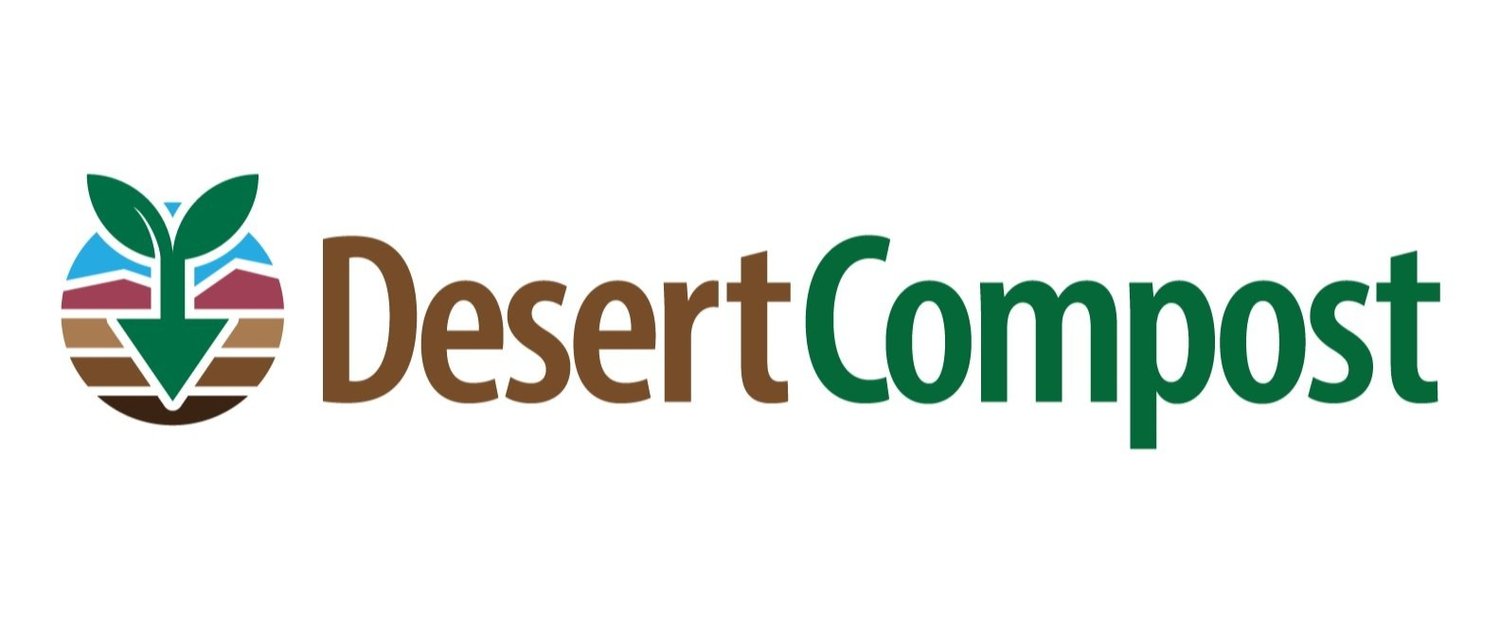Below The Surface: Desert Compost’s BEST PRACTICES
At our education table events we talk to A LOT of people. We answer every question related to composting. One of the questions we get regularly from the public is: “So what’s happening with that new law and the garbage companies and why are they asking us to bag our kitchen scraps in plastic? It makes no sense! I mean, plastic, really???”
We quite agree.
So in effort to encourage public officials and garbage companies to do BETTER, these are Desert Compost’s recommended industry BEST PRACTICES. *
In an effort to reduce methane and other greenhouse gas emissions to mitigate climate change, CA State Bill 1383 will require us all to begin separating our organic waste and compost it, starting in October 2022. Waste hauling companies, which typically have a monopoly within their geographic area, have been tasked with creating large-scale composting sites to handle municipal organic waste.
As the Coachella Valley’s definitive source for composting information and expertise, we at Desert Compost (DC) would like to suggest a few best practices for composting in our communities.
Since 80% of methane emissions from organic waste is emitted in the first few days after disposal, it is vital to get the material in the ground as soon as possible. The best possible way to reduce GHG emissions is for individual homeowners to compost in their own backyards.
However, many homeowners may not have either the space, time or physical capacity to create their own personal composting system. The next best solution for the planet is a nearby neighborhood or community site, where households can bring their organic scraps every week or few days. This also guarantees that gasses are being sequestered quickly, with as little fossil fuel expenditure used to deliver the waste for processing as possible.
Home and community composting solutions keep things small and local, helping us to build long term resilience within our food systems. At the largest end of the scale, municipal composting programs need to be able to support all the households in their region. How and when haulers need to collect organic wastes are issues of prime importance, especially in the light of our unique climate conditions here in the desert.
To that end, Desert Compost proposes the following set of proposed Best Practices:
DC believes that municipal waste haulers can provide clean air vehicles in the near future, which upon implementation, will immediately cut GHG emissions.
DC suggests waste haulers consider scheduling twice weekly pickup of compostable wastes, further lowering GHG emissions.
DC challenges waste haulers to find acceptable methods for storing compostable material. Compostable bags quickly degrade in our heat, and plastic bags cannot be composted. If residents are required to collect scraps in plastic bags, then the municipal hauler will be forced to add another step to the process, to rip open and empty the bags. The collected bags will then need to be added to the landfill, ultimately increasing GHG emissions.
DC hopes that local waste companies will experiment with various kinds of organic waste canisters or bins, dedicated solely for compostable materials. If all organic waste is confined within a bin with a lid, with no plastic bags involved, and picked up frequently for sequestration, GHG emissions will be reduced.
DC recommends the waste industry institute oversight, compliance measures, and efficacy reviews as soon as organic waste operations begin. Our cities require the most conscientious level of service in their hauling contracts, in order to reflect the urgency of the climate crisis and maintain the trust of communities served.
